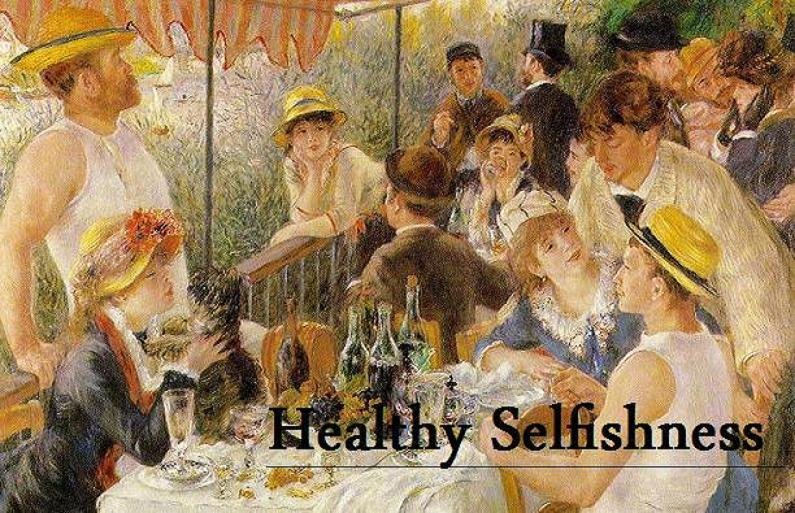Thursday, November 30, 2006
Wednesday, November 29, 2006
The Mind is all I need
Lately I have encountered an extremely interesting book by Michael Apler "The 'God' Part of the Brain". Well, honestly speaking I haven't yet chance to read it, but the premise (that You'll find in the link) sounds intriquing. Looking for information about the author I found an interview which will give an idea what's the book about.
Q: What compelled you to write this book ?
A: From the moment I conceived of my own mortality, I was compelled to question the notions of a spiritual reality, a god, a soul, and an afterlife. Was I mortal or immortal? Was I a physical or spiritual being?
Q: What led you to take the approach you did ?
A: Having studied the cognitive sciences, I came to realize that every aspect of my conscious experience could be reduced to neurophysiological processes. Perhaps, I thought, the same might be true for what we refer to as spiritual experiences as well.
Q: What do you mean exactly by a "God" part of the brain ?
A: What I mean by this is that the human species possesses a mechanism, an evolutionary adaptation in our brain--a religious/spiritual function--which compels us to perceive and believe that there exists a transcendental/supernatural quality in the universe.
Q: And why would our species have evolved such a mechanism ?
A: With the advent of self-conscious awareness, humans became the first animal that could conceive of its own mortality, its own inevitable death.
In order to survive the excruciating anxiety that resulted from this awareness, a cognitive mechanism was selected into our species that compelled us to believe in an alternate, spiritual reality, one which allowed us to perceive ourselves as able to transcend physical death and therefore live forever in some type of afterlife.
Q: What evidence is there that we possess such a "spiritual" mechanism in our brain ?
A: Empirically, the fact that every culture from the dawn of our species has believed in some form of a spiritual reality as well as engaged in specific religious practices (building of religious shrines; creation of a mythology and a priestly class; praying; birth, puberty, marriage and death rituals; etc,.) would imply that spirituality and religiosity represent an integral part of our genetic inheritance.
Ethnobotanically, the fact that there exist certain plants and/or chemicals that can trigger a spiritual experience in us demonstrates that there must exist some part of the brain that is receptive to these chemicals.
Moreover, recent neurobiological evidence supports such a hypothesis.
a) Temporal lobe epileptics: people whose seizures trigger intense religious feelings.
b) Religiously-oriented "organic psycho-syndromes" in which people who have suffered a head injury, afterwards, become excessively religious.
c) Michael Persinger's transcranial magnetic stimulator, a device that shoots a concentrated electromagnetic field at a specific portion of the brain. When directed at the temporal lobe, the subject invariably undergoes a religious/spiritual experience.
d) Functional MRIs have revealed that the acts of meditation and prayer activate specific parts of the brain.
Q: Is there a difference between our spiritual and religious impulses ?
A: Yes. Whereas the religious impulse compels us to create a mythology, adhere to church doctrine, and engage in ritualistic behaviors, the spiritual impulse compels us to undergo experiences that make us feel connected to some "higher" force or power. Consequently, we tend to view these experiences as evidence that some higher realm does indeed exist.
Being that these represent two unique impulses, it's very possible that someone can be exceedingly religious, though not particularly spiritual, or, exceedingly spiritual, though not very religious.
Q: What is the extent of the "god module"? Does it explain all manifestations of spirituality or only religion?
A: Though what is referred to as a "God module" is really a nexus of several interactive mechanisms in the brain, religiosity does seem to be focused in the temporal lobe, whereas spiritual experience is derived from a combination of the amygdala, the parietal lobes and the right frontal cortex.
Q: Given that, as you mention, every feature of our experience can be reduced to neurophysiological processes, how would you qualify yourself on the reductionism/anti-reductionism conflict?
A: I am a strict reductionist.
Q: What do you think of reducing everything to genetics? Do you think there is more to life than the development of the effects of the genome in the individual and, by extension, society?
A: In regard to behavior, I look at it as genes representing the foundation of all behavior, whereas experience is the architect which builds upon that foundation. Savant that he was, had Mozart been born to indentured slaves, he would have grown to be the guy who could whistle a mean tune while toiling the fields. We are born with certain genetic potentials. Whether we fulfill these potentials depends on whether they are properly nurtured with experience.
Q: But does not the context of our experience also derive from the genetically-motivated behaviour of other people?
A: Absolutely, all feeding into the reductionist cycle of human experience.
Q: Can research on the "god module" bridge the much-vaunted gap between science and religion? What do you think of scientific pantheism as another possible bridge?
A: As far as I'm concerned, these new findings have sealed the gap between science and religion.
Q: What reactions have you gotten to the "god module" idea from the general public?
A: Everything from praise to contempt.
Q: What do some people find contemptible about the "god module" idea ? Its reductionism ?
A: Given that I am purporting that our spiritual/religious proclivities and beliefs emerged as an evolutionary adaptation--a physiologically-based coping mechanism--this would imply that there is no spiritual reality, no god, no soul, no afterlife, nothing that transcends or supercedes the physical realm whatsoever, in effect, invalidating every brand of spiritual or religious belief that exists. As you could imagine this has pissed off a few people.
In regard to the reductionistic qualities of such a theory, people seem to be further ired--even the non-religious--by the greater implication that all cognition/perception/emotion/sensation is derived from our genetic make-up in conjunction with the environment in which those genetic potentials are nurtured, neither variable of which we have the slightest control or influence therefore suggesting that there is no such thing as free will.
Even many atheists I've come across renounce such a harsh world view.
Q: How can humankind possibly benefit from these ideas?
A: As much as it might help to bond a society, as well as to provide us with mutual values and a sense of eternal hope, the religious impulse generates certain discriminatory behaviors that prompt us to commit all sorts of hateful acts and atrocities.
Perhaps if we we were to accept religiosity as a biologically-based impulse, we might be able to curb its potentially hazardous excesses, such as those that have led our species to engage in repeated acts of hostility, war, and genocide. Perhaps if were to come to terms with the fact that our species has been born into a neurological web of deceit, installed with a genetically inherited "white lie," we might be better able to more effectively focus our energies on the here and now, as opposed to on some dubious hereafter.
Q: You foresee a possible future where mankind learns to overcome its neurological impulses.
But what if we continue on our present course do you think that the divergence between our evolved instincts and today's increasingly complex world will attain a breaking point, or will we simply continue to be more and more dysfunctional beings ? How do you foresee our future as thinking beings?
A: Being that rational behavior and thinking is enacted by such a small percentage of individuals, I personally think that, in time, mankind is going to destroy itself in the end. Not the most optimistic prognosis but it's what I truly believe.
Q: Given that there is a god module, I suppose you agree that it is possible to eliminate spirituality, for example thru genetic engineering. Do you think it is desirable to do so, and why?
A: I would not seek to tamper with our genetic codes to eradicate our religious/spiritual impulses. It is mainly the extremes of this impulse which represent the greatest threat and need to be curbed by social education.
Q: This existential anxiety which must have also gripped our ancestors, the meaninglessness of the universe, those things that the "god module" is designed to supersede, do you think these subjects deserve more attention than they get today because of religion?
A: I think that as a result of our species' inherent religious impulses combined with a general intellectual malaise, most people accept whatever paradigm they were raised with as children and don't seek a much deeper understanding of their own humanity.
Q: Personally, have you come to grips with these subjects? If so, how?
A: I embrace my mortal coil and simply try to live my life with enough passion and integrity to make sure that I accomplish all my goals within this one and only lifetime.
Trashed into: Debate
Tuesday, November 28, 2006
Sunday, November 26, 2006
Phenomenon
Trashed into: Life
Thursday, November 23, 2006
The End ...
Trashed into: Sadness
Tuesday, November 21, 2006
Miners' fate
Trashed into: Sadness
Monday, November 20, 2006
Hahaha
http://www.youtube.com/watch?v=5P6UU6m3cqk&eurl=
Trashed into: Fun
My November
Trashed into: Life
Friday, November 17, 2006
Foggy world
Trashed into: Life
"All me" Quotations
Trashed into: Life
Saturday, November 11, 2006
My Delight
Trashed into: Life
Wednesday, November 08, 2006
Monday, November 06, 2006
Midnight Melancholy (Breathe)
Trashed into: verses
Sunday, November 05, 2006
First November Snow


Trashed into: Life
Friday, November 03, 2006
Novbember Freeze
Location: the seat by the bus window
Time: early evening, heading to the rehersal
Weather: freezing November
Thursday, November 02, 2006
Wednesday, November 01, 2006
All Hallow Eve
Trashed into: Life



.jpg)
